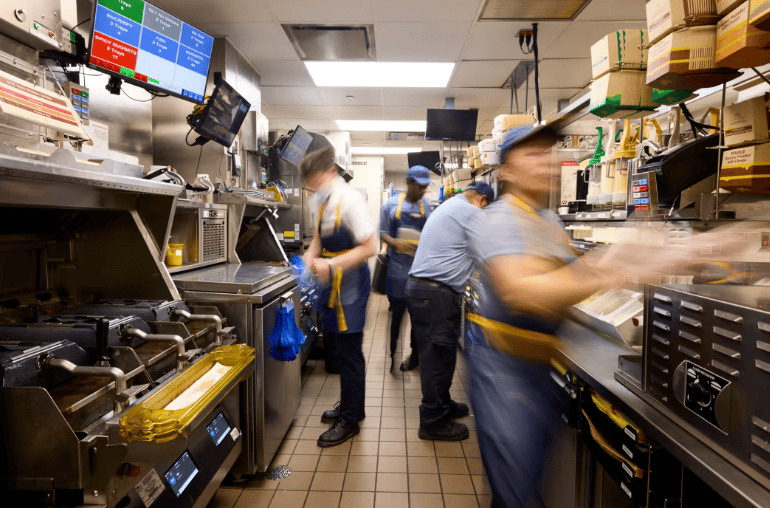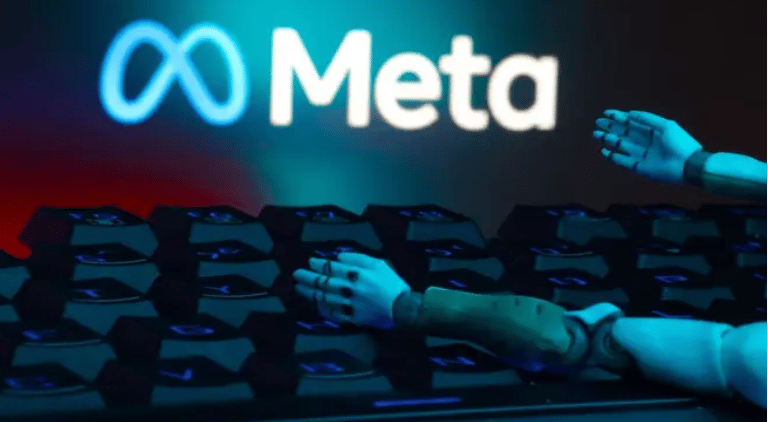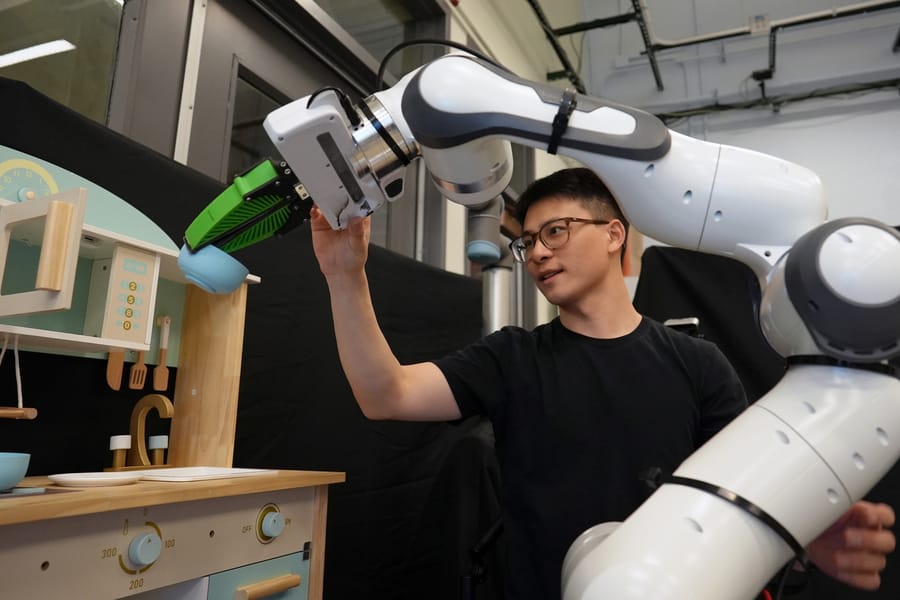
Welcome, AI Enthusiasts!
McDonald’s is transforming its global operations with AI-driven automation, Meta is testing its first in-house AI training chip to cut reliance on Nvidia, and Foxconn has built its own AI model in just four weeks. Meanwhile, MIT and NVIDIA have unveiled a new AI framework that allows real-time robot corrections without retraining.
In today’s Generative AI Newsletter:
McDonald’s AI Overhaul: Edge computing, predictive maintenance, and automated drive-thrus
Meta’s Custom AI Chip: A shift toward in-house AI hardware development
Foxconn’s FoxBrain AI Model: Taiwan’s first industrial-focused LLM
MIT & NVIDIA’s Robot AI: Real-time corrections without retraining
AI is Reshaping Industries—Are You Ready to Lead?
84% of professionals feel unprepared to keep up with AI’s rapid evolution. The reason? Traditional programs focus on theory—real success comes from hands-on application.
At GenAI.Works, we don’t just teach AI—we help you apply it. Learn from AI leaders at Stanford, OpenAI, and Google, and gain real-world experience tackling industry challenges that drive measurable impact.
🔹 What You’ll Gain:
✔ AI skills you can apply immediately
✔ Hands-on experience solving real business problems
✔ Recognition and leadership opportunities in AI
The AI revolution is here. Will you follow—or lead? Future-proof your career today.
🍟 McDonald’s Bets Big on AI-Powered Restaurants

Image Credits: McDonald’s
McDonald’s is deploying AI across its 43,000 restaurants, bringing real-time edge computing, predictive equipment monitoring, and automated order verification to its global operations. The initiative aims to reduce machine failures, improve service speed, and optimize workforce efficiency—all while using AI-driven insights to personalize customer promotions.
🔥 What’s Changing?
McDonald’s is integrating Google Cloud-powered edge computing, enabling real-time AI processing for in-store automation.
Sensors installed on kitchen equipment (including the infamous ice cream machines) will detect failures before they happen.
Computer vision will check drive-thru orders for accuracy before handing them to customers.
McDonald’s is testing voice AI ordering, replacing human order-takers with automated assistants.
A generative AI system will handle scheduling and administrative tasks, reducing manager workload.
AI will leverage weather data + past purchases to send dynamic offers, like a McFlurry deal on hot days.
With 70 million daily customers, even small inefficiencies add up. AI is set to cut costs, speed up service, and reduce employee stress, all while pushing McDonald’s further ahead of competitors. As Taco Bell, Wendy’s, and Pizza Hut also lean into AI, the fast-food industry is on the brink of an automation revolution.
🦊 Foxconn Unveils FoxBrain, Its Own AI Model

Image Source: Reuters
Foxconn, the world’s largest electronics manufacturer, has announced FoxBrain, its first in-house AI model, designed to enhance manufacturing, supply chain management, and enterprise automation. Built in just four weeks, FoxBrain specializes in data analysis, reasoning, mathematics, and code generation, marking a strategic shift for Foxconn into AI-driven industrial optimization.
🔥 What Sets FoxBrain Apart?
Developed in just four weeks on 120 Nvidia H100 GPUs using Taipei-1, Taiwan’s largest supercomputer.
Focuses on predictive analytics, process automation, and real-time decision-making in manufacturing and logistics.
Taiwan’s first advanced reasoning AI based on Meta’s Llama 3.1, fine-tuned for traditional Chinese and industrial applications.
While trailing DeepSeek in some benchmarks, FoxBrain delivers strong results in reasoning and coding tasks.
Foxconn’s rapid AI deployment proves that LLMs can be built fast and optimized for specialized fields—raising the question: If an iPhone manufacturer can develop advanced AI in a month, what’s stopping Apple?
🔥 Meta Begins Testing Its First AI Training Chip

Image Credit: Reuters
Meta has started testing its first AI training chip as part of its plan to develop its own AI infrastructure. The chip is part of the Meta Training and Inference Accelerator series and was built with Taiwanese chip manufacturer TSMC. If the test is successful, Meta will expand production and integrate the chip across its AI systems.
🔑 Why It Matters
Moving away from Nvidia as Meta aims to reduce dependence on external suppliers for AI hardware
Cutting costs as AI infrastructure spending is expected to reach sixty five billion dollars in twenty twenty five
Designed for AI workloads as the dedicated accelerator is expected to be more efficient than traditional GPUs
Overcoming past failures as Meta had previously abandoned an in-house AI chip project before achieving success with its inference chip last year
As AI companies rethink how to scale large models, Meta’s investment in custom chips signals a major shift toward independence. The question remains whether this strategy will succeed or if the company will continue relying on Nvidia for the foreseeable future.
🤖 MIT & NVIDIA Develop Real-Time Robot Correction AI

Image Credit: MIT
MIT and NVIDIA researchers have created a breakthrough AI framework that allows users to correct a robot’s actions in real time—without requiring complex data collection or model retraining. Instead of dealing with frustrating robotic mistakes, users can now point, trace, or physically guide a robot to improve its performance instantly.
🔥 Why It Matters
No More Tedious Retraining: Users can correct errors on the fly instead of collecting data and fine-tuning neural networks.
Three Ways to Fix Mistakes: Point at objects, trace desired trajectories, or physically nudge the robot into the correct position.
Better User Alignment: The AI balances user intent with valid robot motions, avoiding unintended collisions or errors.
Continuous Learning: After multiple nudges, the robot can remember corrective actions and improve future performance.
This system could transform household and industrial robotics, making them more adaptive to unique environments. As AI-driven robots become more commonplace, intuitive human-AI collaboration will be essential for seamless real-world integration.

🚀 Boost your business with us—advertise where 10M+ AI leaders engage
🌟 Sign up for the first AI Hub in the world.


